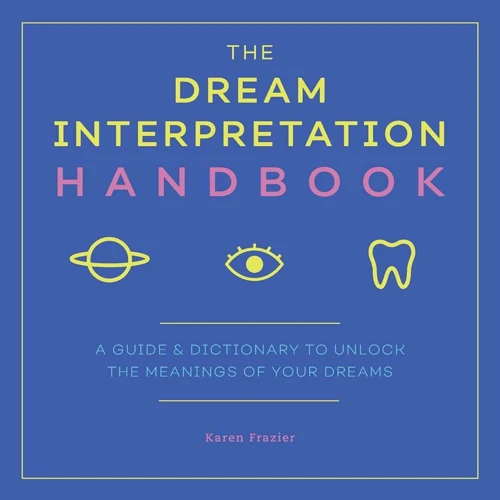Flying dreams have long held a mysterious fascination for people across cultures and time. The experience of soaring through the air, defying gravity, and gliding effortlessly can evoke a sense of wonder and awe. But what do these dreams really mean? Are flying dreams merely a product of our subconscious mind, or do they hold deeper psychological significance? In this captivating article, we will explore the vast symbolism and interpretations behind flying dreams, uncovering their connection to freedom, empowerment, and spiritual awakening. We will delve into the psychological implications of flying dreams, including their link to self-esteem, desire for change, and unconscious desires. Additionally, we will examine common variations of flying dreams and how different cultures interpret this extraordinary phenomenon. Whether you find yourself gracefully gliding or struggling to stay afloat in your dreams, this article will provide you with valuable insights on how to analyze and interpret your own flying dreams. Prepare to take flight into the intriguing realm of the mind’s mysteries.
What Are Flying Dreams?

Flying dreams are a type of dream where the dreamer finds themselves soaring through the air, typically without the aid of any external device. These dreams often involve a sensation of weightlessness and freedom, as if the dreamer is defying the laws of physics. In flying dreams, individuals may experience a range of emotions, from exhilaration and joy to fear and uncertainty. While flying dreams can vary in their content and context, they share the common theme of flight and movement through the air. It is important to note that flying dreams are distinct from other types of dreams, such as falling dreams, where the dreamer experiences a sense of descent or loss of control. Flying dreams, on the other hand, often convey a sense of empowerment, control, and liberation. Flying dreams have been a subject of fascination and interest for centuries, and they have been explored in various cultures and belief systems. These dreams have also been linked to other phenomena such as lucid dreaming and recurring dreams. Lucid dreaming, for example, refers to dreams in which the dreamer is aware that they are dreaming and can exert some control over the dream’s narrative and outcomes. This awareness can enhance the experience of flying dreams, allowing individuals to fully immerse themselves in the sensation of flight and explore the possibilities of their dream world. Recurring flying dreams are another common occurrence, where individuals experience flying as a recurring theme in their dreams. These dreams can have a profound impact on the dreamer’s psyche and may hold special significance or symbolism in their lives. It is worth noting that flying dreams and falling dreams are often seen as opposite symbols. While flying symbolizes freedom, empowerment, and control, falling represents a loss of control, vulnerability, and fear. Understanding the unique characteristics of flying dreams and differentiating them from falling dreams is crucial in unlocking their meaning and significance in one’s life.
The Symbolism of Flying Dreams

Flying dreams carry powerful symbolism that reflects various aspects of the dreamer’s psyche. One significant symbol in flying dreams is the sense of freedom and liberation. This symbolizes the desire for independence and breaking free from limitations or constraints in waking life. The act of flying represents a release from the boundaries that hold us back, allowing us to soar above obstacles and explore new heights. Another symbol is empowerment and control. Flying dreams often evoke a sense of empowerment, as the dreamer has the ability to navigate and control their flight. This symbolizes the dreamer’s desire to take charge of their life and have a sense of agency. Flying dreams can also serve as a form of escapism and avoidance. They may indicate a need to escape from challenging situations or emotions in waking life. By taking flight in dreams, individuals may find temporary relief from stress or anxiety. Flying dreams can have a spiritual connection, symbolizing a higher level of consciousness or a connection to the divine. These dreams can convey a sense of spiritual awakening, exploration, and enlightenment. It is important to note that the symbolism of flying dreams can vary depending on the individual’s personal experiences and cultural background. Exploring the meaning behind these dreams can provide valuable insights into the dreamer’s emotional state, desires, and aspirations. (Source: [Lucid Dreaming – Flying Dreams](/lucid-dreaming-flying-dreams/))
Freedom and Liberation
Freedom and liberation are common themes associated with flying dreams. When individuals experience the sensation of flying in their dreams, it often symbolizes a sense of liberation from the constraints and limitations of daily life. Flying represents breaking free from societal norms, expectations, or personal restrictions that may be holding them back. The feeling of soaring through the air without boundaries or limitations brings a profound sense of freedom and empowerment. In these dreams, individuals may experience a heightened sense of independence and the ability to navigate their own path through life. Flying in dreams can also signify the desire for personal growth and exploration, as it allows one to transcend physical limitations and experience the world from a different perspective. The symbolism of freedom and liberation in flying dreams can be interpreted as a call to break free from self-imposed restrictions, embrace individuality, and pursue personal passions and goals. It can serve as a reminder to live life on one’s own terms without being confined by the expectations of others. Recurring flying dreams often emphasize the need for individuals to embrace their own unique desires and aspirations and to break free from any self-doubt or fear that may be holding them back. Understanding the significance of freedom and liberation in flying dreams can provide individuals with valuable insights and inspire them to embrace their own personal journey towards self-discovery and fulfillment. To delve deeper into the contrasting symbolism of flying and falling dreams, you can refer to the article “Flying vs. Falling Dreams: Exploring Opposite Symbols”.
Empowerment and Control
Empowerment and control are key themes associated with flying dreams. When individuals experience the sensation of flying in their dreams, they often feel a tremendous sense of empowerment and freedom. In these dreams, the dreamer has the ability to defy gravity, navigate through the air, and explore the world from a different perspective. This newfound power can symbolize the dreamer’s desire for control in their waking life. Flying represents a sense of agency and the ability to overcome obstacles and limitations. It can indicate a strong belief in one’s capabilities and a desire to take charge of one’s circumstances. The experience of flying in dreams can help individuals tap into their inner strength and unleash their full potential. Flying dreams can serve as a reminder that individuals have the ability to rise above challenges and overcome adversity. It can be a symbol of resilience and determination, motivating the dreamer to take control of their life and pursue their goals with confidence. Recurring flying dreams, in particular, hold even greater significance in terms of empowerment and control. When these dreams occur repeatedly, they can indicate a deeper longing for personal empowerment, a need to assert oneself, or a desire for autonomy and independence. Exploring the recurring theme of flying in dreams can provide valuable insights into the dreamer’s subconscious desires and ambitions. It is important to pay attention to the specific details and emotions experienced in these dreams, as they can provide clues to areas in one’s life where empowerment and control are sought. By embracing the symbolism of empowerment and control in flying dreams, individuals can harness their inner strength, seize opportunities, and navigate through life with a greater sense of purpose and self-assurance.
Escapism and Avoidance
Escapism and avoidance are psychological themes that can be associated with flying dreams. In these dreams, the act of flying can provide a sense of escapism from the challenges, stresses, or realities of waking life. Flying becomes a means of detachment from the mundane and a way to explore an alternative reality. Individuals may use flying dreams as a form of emotional retreat, seeking refuge from their responsibilities or the difficult emotions they may be experiencing. These dreams can provide a temporary respite from the pressures of daily life and offer a sense of relief and freedom. In some cases, flying dreams may serve as a way to avoid confronting difficult situations or emotions directly. Individuals may use the act of flying as a mechanism to evade or distance themselves from problems or conflicts they may be facing. Instead of facing their fears or tackling their issues head-on, they choose to soar above them in the dream world. It is important to note that while escapism and avoidance can be valid reasons behind flying dreams, they may also indicate a need for emotional resolution or a desire to escape from challenging circumstances. Recurring flying dreams, for example, can be a reflection of ongoing avoidance patterns in one’s waking life. Understanding the underlying reasons and context of escapism and avoidance in flying dreams can provide valuable insights into an individual’s psychological well-being and guide them towards addressing any unresolved issues. Building self-awareness and actively working towards finding healthier coping mechanisms can help individuals move beyond mere escapism and towards emotional growth and personal development.
Spiritual Connection
– Flying dreams are often associated with a deep sense of spiritual connection. Many individuals who experience flying dreams report feeling a profound connection to something greater than themselves. This connection can manifest in various ways, depending on an individual’s spiritual beliefs and practices.
– Some interpret flying dreams as a symbol of transcendence and the ability to rise above earthly concerns. It represents a higher state of consciousness and a connection to the divine or spiritual realms. The act of flying in dreams can be seen as a metaphorical journey towards enlightenment or a higher level of spiritual understanding.
– In some spiritual traditions, flying dreams are believed to be a form of astral projection, where the soul or consciousness temporarily leaves the physical body and travels in a non-physical realm. This out-of-body experience allows individuals to explore different dimensions and gain insight into the nature of reality.
– Others interpret flying dreams as a sign of the soul’s liberation from worldly attachments and limitations. The ability to fly represents a release from the constraints of the physical world and a glimpse into the limitless potential of the soul. It symbolizes a deep connection to one’s true essence and the ability to transcend the boundaries of the material realm.
– Flying dreams can also serve as a reminder to individuals to connect with their spiritual nature and tap into their inner power. These dreams often arise during times of personal growth or spiritual awakening, signaling a call to explore one’s spiritual path and embrace a deeper connection with the universe.
– For those who experience recurring flying dreams, the spiritual connection may hold even greater significance. These dreams may serve as a reminder of a soul’s purpose or a long-standing spiritual journey. Exploring the recurring themes and symbols in these dreams can provide valuable insights into one’s spiritual development and guide them towards a more fulfilling and connected existence.
[Recurring flying dreams](/recurring-flying-dreams/) can be particularly meaningful, as they indicate that the spiritual connection is a recurring theme in one’s subconscious mind. By analyzing and interpreting the symbolism and emotions present in these dreams, individuals can gain a deeper understanding of their spiritual journey and take steps towards achieving a more profound connection with their spirituality.
The Psychological Interpretations of Flying Dreams

The psychological interpretations of flying dreams provide profound insights into the depths of our unconscious mind. These dreams are often associated with themes of self-esteem and confidence, as the act of flying symbolizes a sense of personal power and mastery. Flying dreams can be a manifestation of our desire to overcome challenges and obstacles in our waking lives, representing a need for growth and transformation. They can also serve as a reflection of our unconscious desires and fantasies, allowing us to explore and express parts of ourselves that may be hidden or suppressed. Flying dreams hold a mirror to our deepest desires for change and freedom, offering us a glimpse into our innermost yearnings. By examining the psychological interpretations of flying dreams, we can gain a better understanding of ourselves and uncover the hidden emotions and motivations that shape our waking experiences.
Self-Esteem and Confidence
Self-esteem and confidence play a significant role in the interpretation of flying dreams. When individuals have flying dreams, it often reflects a sense of empowerment and self-assurance. The ability to effortlessly navigate through the air and soar above the ground can symbolize a strong belief in one’s abilities and a high level of self-esteem. In these dreams, individuals may experience a surge of confidence, as they have the freedom to explore and conquer their surroundings. Flying represents a break from the limitations and constraints of daily life, allowing individuals to tap into their inner strength and potential. The act of flying can serve as a metaphor for overcoming challenges and obstacles in waking life. Facing adversity head-on and rising above it is a demonstration of resilience and self-assurance. Flying dreams can act as a reminder of one’s capabilities and serve as a confidence boost when faced with difficulties. The experience of flying in dreams can also help individuals develop a more positive self-image and encourage them to embrace their uniqueness and strengths. By embracing the freedom and confidence symbolized by flying dreams, individuals can carry those empowering feelings into their waking life, enhancing their overall self-esteem and confidence.
Overcoming Challenges and Obstacles
Overcoming challenges and obstacles is a common psychological interpretation of flying dreams. When individuals soar through the air in their dreams, it can symbolize their ability to overcome difficulties and rise above life’s challenges. The act of flying represents a sense of empowerment and control, suggesting that the dreamer possesses the strength and resilience to face and conquer obstacles in their waking life. Flying dreams often evoke a feeling of liberation and freedom, as if the dreamer can effortlessly navigate through any barriers or limitations. This symbolism of overcoming challenges in flying dreams can serve as a source of inspiration and motivation for individuals to confront and conquer real-life difficulties. It encourages them to believe in their own abilities and inner power to triumph over adversity. Flying dreams can also signify a desire for personal growth and development. The dreamer may be yearning for a transformative experience, seeking to break free from limitations and expand their horizons. Flying dreams can serve as a reminder that with determination and perseverance, one can achieve great heights and overcome any obstacles that may come their way. By embracing the symbolism of flying and harnessing the confidence and strength it represents, individuals can find the motivation to tackle challenges head-on and emerge stronger on the other side.
Desire for Change and Transformation
The desire for change and transformation is a prominent psychological interpretation of flying dreams. When individuals dream of flying, it often represents a deep longing for personal growth, new beginnings, and the ability to break free from limitations. Flying in dreams can symbolize the desire to escape the confines of everyday life and explore uncharted territories. It signifies a yearning for change, whether it be in relationships, career, or personal development. The act of flying itself is an embodiment of freedom and liberation, and in this context, it reflects the dreamer’s innermost desire for transformation and self-improvement.
Flying dreams can also indicate a need for progression and a willingness to take risks. This interpretation aligns with the notion that flying dreams are often associated with feelings of empowerment and control. The dreamer may feel a strong urge to rise above obstacles, face challenges head-on, and embrace new experiences. The dream serves as a metaphorical representation of the dreamer’s determination to overcome obstacles and make positive changes in their life.
Flying dreams can symbolize the desire to let go of the past and embrace a new chapter. The act of flying signifies leaving behind old patterns, beliefs, and limitations, and embracing a fresh perspective. It represents a transformative journey of self-discovery and reinvention.
Individuals experiencing flying dreams with a desire for change and transformation often possess a powerful drive to explore their true potential and pursue their dreams and aspirations. These dreams can serve as a catalyst for self-reflection and motivate individuals to take proactive steps towards personal growth and positive change.
The desire for change and transformation is a significant psychological interpretation of flying dreams. Such dreams reflect a yearning for personal growth, the willingness to take risks, and the longing to break free from limitations. They inspire individuals to embrace new beginnings, let go of the past, and embark on a transformative journey towards self-discovery and empowerment.
Unconscious Desires and Fantasies
Unconscious desires and fantasies play a significant role in the interpretation of flying dreams. These dreams often provide a platform for exploring hidden desires and unfulfilled aspirations that lie deep within the subconscious mind. The act of flying represents a sense of freedom and escape from the constraints of daily life. In this context, flying dreams can represent a longing for liberation from responsibilities, routines, and limitations. They offer a symbolic expression of our deepest desires to break free from societal norms and expectations. Flying dreams can also tap into our fantasies and desires for adventure, exploration, and experiencing new aspects of life. They may serve as a reflection of our yearning to embrace new opportunities and take risks. Flying dreams can symbolize the desire for transcendence and spiritual growth. It signifies a connection to something greater than oneself and a longing for higher states of consciousness. Flying dreams may indicate a subconscious desire to attain spiritual enlightenment or a deeper understanding of the self. It is important to recognize that these unconscious desires and fantasies revealed in flying dreams are unique to each individual. The interpretation of these dreams requires introspection and self-reflection to uncover the personal meanings and motivations behind them. By exploring and acknowledging these unconscious desires and fantasies, individuals can gain insight into their own inner world and work towards fulfilling their deepest aspirations.
Common Variations of Flying Dreams

Common variations of flying dreams can offer unique insights into the dreamer’s subconscious mind and emotions. In some dreams, individuals may find themselves soaring high in the sky, effortlessly gliding with a sense of freedom and exhilaration. These dreams often symbolize a desire for liberation, escaping limitations, and reaching new heights in life. Conversely, some flying dreams may involve struggling to stay afloat, encountering obstacles or resistance while attempting to fly. These dreams may reflect challenges and difficulties that the dreamer is currently facing, representing a need to overcome obstacles and find solutions. Another variation of flying dreams is when the dreamer flies away from danger or a threatening situation. These dreams can be an indication of a desire to escape or avoid a stressful or overwhelming aspect of waking life. Whether it is soaring high, struggling, or fleeing, each variation of flying dreams carries its own significance and can provide valuable insights into the dreamer’s psyche.
Soaring High in the Sky
Soaring high in the sky is a common variation of flying dreams, where individuals find themselves effortlessly gliding through the limitless expanse of the sky. In these dreams, the dreamer experiences a sense of supreme freedom and liberation, as they rise above the world below. This elevation symbolizes a transcendence of earthly limitations and a connection to something greater than oneself. Soaring high in the sky in a dream can represent a desire for escape from the constraints of daily life, a longing for a higher perspective, or a need for emotional or mental release. These dreams often evoke feelings of euphoria and exhilaration, as individuals relish in the boundless possibilities and expansive horizons that flying in the sky offers. Flying high in the sky can also indicate a sense of achievement, as it reflects a journey of personal growth and the ability to rise above challenges and obstacles. This variation of flying dreams can signify a deep-rooted desire for freedom, independence, and a yearning to explore uncharted territories. It may also symbolize a longing for spiritual connection or a quest for enlightenment. Soaring high in the sky in a flying dream is a powerful symbol of liberation, expansion, and the pursuit of higher aspirations.
Flying with Ease and Grace
Flying with ease and grace in dreams is a remarkable experience that evokes a sense of effortless mastery and fluidity. Individuals who have dreams of flying with ease and grace often report feeling a deep sense of control and harmony with their surroundings. In these dreams, flying becomes second nature, as if the dreamer has fully embraced their ability to navigate the skies. The sensations of flying with ease and grace can be described as smooth and seamless, with movements that are coordinated and graceful. The dreamer may glide effortlessly through the air, performing aerial maneuvers with precision and finesse. It is not uncommon for individuals in these dreams to feel a profound connection to nature and the elements, as if they are in perfect sync with the world around them. The experience of flying with ease and grace often reflects a state of inner balance and confidence. It can symbolize a sense of self-assurance and mastery over one’s life circumstances. Dreamers who find themselves effortlessly flying may be embodying qualities such as resilience, adaptability, and assertiveness in their waking life. These dreams can serve as a reminder of the dreamer’s capabilities and strengths, encouraging them to lean into their innate talents and abilities. Flying with ease and grace also represents a sense of liberation and freedom from limitations. It can signify the willingness to rise above challenges and obstacles, soaring above the mundane and embracing a higher perspective. These dreams may be an indication that the dreamer is navigating through life with confidence and grace, embracing their true potential and embracing the opportunities that come their way. Whether literal or metaphorical, the experience of flying with ease and grace in dreams is a powerful symbol of personal growth, self-belief, and the ability to transcend limitations.
Struggling to Stay Afloat
In some flying dreams, individuals may find themselves struggling to stay afloat, facing challenges or obstacles that hinder their ability to maintain flight. This struggle often manifests as difficulty in gaining altitude, navigating through the air, or maintaining control. It can be a frustrating and daunting experience for the dreamer, as they try to exert effort and willpower to stay airborne. The feeling of being weighed down or unable to move freely may reflect real-life situations where individuals are grappling with obstacles, insecurities, or emotional burdens that limit their sense of freedom and progress. Struggling to stay afloat in a flying dream can symbolize the challenges and hardships faced in waking life, such as personal or professional setbacks, relationship difficulties, or a lack of confidence. These dreams may serve as a reminder to confront and overcome obstacles, to persist in the face of adversity, and to find ways to regain control and stability. They can also signify the need for self-reflection and the exploration of underlying emotions or fears that may be holding the dreamer back. By acknowledging and addressing these struggles, individuals can work towards finding solutions, developing resilience, and ultimately regaining their sense of empowerment and freedom in both their dreams and their waking lives.
Flying Away from Danger
Flying away from danger is a common variation of flying dreams, where the dreamer finds themselves using their ability to fly as a means of escape. In these dreams, the dreamer may encounter threatening or dangerous situations, such as being chased by a predator, caught in a natural disaster, or facing a threatening individual. The act of flying in these dreams represents the dreamer’s desire to flee or distance themselves from the imminent danger. This symbolizes a deep-seated instinct for self-preservation and a subconscious recognition of threats in one’s waking life. Flying away from danger in a dream can reflect the dreamer’s need to protect themselves and seek safety in times of adversity. The ability to fly in these dreams empowers the dreamer to rise above their fears and overcome obstacles. It signifies their resilience and resourcefulness in confronting challenges head-on. Flying away from danger also represents a desire for freedom and release from oppressive or stressful situations. By taking flight, the dreamer seeks to break free from the constraints and limitations that hold them back in their daily life. This dream variation may also indicate a need for emotional or psychological detachment from a distressing or toxic environment. Flying away from danger allows the dreamer to gain perspective and distance themselves from harmful influences. It is important to pay attention to the specific details and emotions associated with flying away from danger dreams. These details can provide valuable insights into the nature of the perceived threat and the underlying stressors in the dreamer’s life. By recognizing these patterns, individuals can become more aware of their fears and take proactive steps to address and mitigate them.
Interpreting Flying Dreams in Different Cultures

Interpreting flying dreams in different cultures reveals fascinating insights into how this phenomenon is perceived and understood across diverse belief systems. In Chinese culture, flying dreams are often associated with spiritual elevation and transcendence. They are seen as messages from ancestors or deities, signaling the dreamer’s connection to the divine realm. Similarly, in Native American cultures, flying dreams are regarded as visions of the spirit world or a sacred journey, symbolizing the dreamer’s ability to navigate between the physical and spiritual realms. In ancient Greek mythology, flying dreams were linked to the gods and were seen as a mark of divine favor or intervention. The idea of human flight in dreams was also present in Islamic and Sufi traditions, representing the soul’s ascension to higher levels of consciousness. Hindu and Buddhist cultures view flying dreams as a reflection of spiritual growth and the attainment of enlightenment. The interpretation of flying dreams in different cultures underscores the universal fascination with flight and the spiritual implications associated with it. While the specific symbols and meanings may vary, there is a common thread representing the human desire for transcendence, connection with the divine, and the pursuit of higher truths. Exploring these cultural interpretations can provide valuable insights and a deeper understanding of the complexities and nuances of flying dreams.
How to Analyze and Interpret Your Flying Dreams

Analyzing and interpreting flying dreams can provide valuable insights into our subconscious mind and emotions. Here are some approaches to help decipher the meaning behind your flying dreams:
1. Reflect on Your Feelings: Pay attention to how you felt during the dream. Were you thrilled and exhilarated, or fearful and anxious? Emotions can provide clues about the underlying message of the dream.
2. Consider the Context: Take into account the details and setting of the dream. Are you flying alone or with others? Is the sky clear or stormy? These elements can contribute to the overall symbolism of the dream.
3. Connect with Your Personal Experiences: Reflect on your waking life experiences that may be influencing your dreams. Are you currently going through a period of personal growth or facing challenges? This can shed light on the purpose and meaning of flying dreams.
4. Seek Professional Help if Needed: If your flying dreams are causing distress or recurring frequently, it may be helpful to consult with a therapist or dream analyst. They can provide guidance and help explore deeper meanings behind your dreams.
Remember, the interpretation of dreams is a highly personal and subjective process. Trust your intuition and use these techniques to unravel the rich symbolism and messages hidden within your extraordinary flying dreams.
Reflect on Your Feelings
Reflecting on your feelings is a crucial step in analyzing and interpreting your flying dreams. Paying attention to the emotions you experienced during the dream can provide valuable insights into its meaning. As you recall the dream, ask yourself, “How did I feel while flying?” Were you filled with joy and exhilaration, or did you feel anxious and fearful? Your emotional state can offer clues about what aspects of your waking life the dream may be addressing. For example, feeling empowered and elated while flying could indicate a sense of personal growth, freedom, or accomplishment in your life. On the other hand, feeling anxious or fearful may suggest underlying stress, a lack of control, or a need to confront and overcome challenges. It’s important to note that emotions in dreams can be amplified or distorted, so consider the intensity of your feelings as well. Reflecting on your emotions will help you establish a deeper connection with your dream and unveil any hidden messages or desires it may be conveying. Remember to trust your intuition and rely on your own personal associations with certain emotions. Your feelings are unique to you, and they hold valuable information about your subconscious thoughts and desires.
Consider the Context
Considering the context of your flying dreams is essential in interpreting their meaning. Every dream is unique and influenced by various factors, including your personal experiences, emotions, and current life situations. Analyzing the context can provide valuable insights into the underlying message of your dreams. Pay attention to the setting in which the flying takes place. Are you flying indoors or outdoors? Is it daytime or nighttime? These details can provide clues about the emotional atmosphere of the dream. For example, flying indoors may indicate a desire for freedom within the boundaries of your daily life, while flying outdoors could symbolize a need for exploration and expansion. Additionally, consider the presence of other people or objects in your dream. Are you flying alone, or are there others flying with you? Are there any obstacles or challenges you encounter while flying? These elements can represent your relationships, challenges, or support systems in waking life. For example, flying with others may signify a sense of connection or collaboration, while obstacles during flight may indicate hindrances or obstacles you are facing in achieving your goals. Reflecting on the emotions you experienced during the dream is also important. Did you feel joy and exhilaration, or were you anxious and fearful? Emotions can provide insight into your subconscious thoughts and feelings. For instance, joy and exhilaration may suggest a sense of empowerment and freedom, whereas anxiety or fear may indicate underlying insecurities or doubts. By considering the context of your flying dreams, you can uncover deeper meanings and gain a better understanding of the messages your subconscious mind is trying to convey. Remember, each dream is unique to the individual, so trust your own interpretations and feelings about the dream’s context. Trusting your intuition can lead to profound personal insights and self-discovery.
Connect with Your Personal Experiences
To truly analyze and interpret your flying dreams, it is essential to connect them with your personal experiences. Reflecting on your waking life and any relevant events or emotions can provide valuable insights into the symbolism and meaning behind your flying dreams. Pay attention to any connections or patterns that arise between your dreams and your daily life. Ask yourself questions such as: Have you recently experienced a sense of freedom or empowerment? Are there any obstacles or challenges in your life that you are trying to overcome? Have you been yearning for change or transformation? By delving into your personal experiences, you can uncover hidden desires, frustrations, or aspirations that may be manifesting in your flying dreams. Additionally, consider the emotions you feel during your dreams. Do you feel joy, exhilaration, or a sense of liberation? Or do you experience fear, uncertainty, or a lack of control? These emotions can provide further clues about the psychological significance of your flying dreams. Connecting with your personal experiences allows you to delve deeper into the underlying messages and meanings behind your dreams. It can also help you identify areas of your life that may need attention or exploration. Remember, everyone’s experiences and dream symbolism are unique, so it is essential to reflect on your own personal journey when interpreting your flying dreams.
Seek Professional Help if Needed
Seeking professional help is a wise step if you find that your flying dreams or any other dreams are causing you distress or interfering with your daily life. Although dream analysis and interpretation can be insightful, it is important to remember that dreams are subjective experiences and can have different meanings for each individual. If your dreams are causing you significant emotional distress, anxiety, or disrupting your sleep patterns, it may be beneficial to consult with a qualified therapist or psychologist. They can provide guidance and support in understanding the deeper psychological implications of your dreams and help you explore any underlying issues that may be surfacing in your dream world. A professional can also assist in identifying any patterns or recurring themes in your dreams, which may offer valuable insights into your subconscious thoughts and emotions. Additionally, seeking professional help can provide a safe and nonjudgmental space to explore any unresolved traumas or unresolved conflicts that may be manifesting in your dreams. Remember, therapy is a collaborative process, and your therapist will work with you to uncover the meaning and significance behind your dreams while helping you navigate any challenges or obstacles you may be facing in your waking life.
Common Dream Symbols Associated with Flying
When exploring the realm of flying dreams, it is important to understand the common dream symbols that are often associated with this extraordinary experience. These symbols can provide deeper insight into the meaning and interpretation of flying dreams. Here are some common dream symbols related to flying:
1. Wings: Wings are a prevalent symbol in flying dreams. They represent the dreamer’s desire for freedom, transformation, and the ability to transcend limitations. Wings symbolize the power to soar above obstacles and explore new heights in life.
2. Birds: Birds are often seen as messengers in dreams, and their presence in flying dreams can symbolize communication with the spiritual realm. They represent a connection to higher consciousness and a sense of guidance and intuition.
3. Floating Objects: In some flying dreams, objects such as balloons or clouds may be present, allowing the dreamer to float effortlessly. These objects symbolize a release of earthly burdens and the ability to embrace a lighter, more carefree existence.
4. High Altitudes: Flying at high altitudes, such as soaring among the clouds or above mountain peaks, represents a sense of grandeur and achievement. It signifies reaching new levels of success, perspective, and aspirations in waking life.
5. Fear of Heights: While flying dreams are often associated with freedom, some individuals may experience fear or anxiety when faced with heights in their dreams. This fear reflects a sense of vulnerability, insecurity, or the need for reassurance in facing life’s challenges.
6. Superpowers: Flying dreams sometimes involve the dreamer possessing superhuman abilities, such as the capability to fly at incredible speeds or perform aerial acrobatics. These superpowers symbolize a heightened sense of personal potential, confidence, and control.
7. Landscapes and Scenery: The landscape and scenery witnessed during flight can hold symbolic meaning. Tranquil and serene landscapes may signify inner peace and harmony, while turbulent or unfamiliar landscapes may represent unresolved emotions or uncertainty.
8. Fantastical Creatures: In some flying dreams, dreamers encounter mythical creatures like dragons or unicorns. These creatures symbolize the dreamer’s connection to the realm of imagination, creativity, and untapped potential.
By recognizing and reflecting upon these common dream symbols associated with flying, individuals can gain a deeper understanding of the emotions, desires, and aspirations that are present within their flying dreams. This knowledge can assist in uncovering the personal significance and lessons that these dreams hold for one’s waking life.
Conclusion
In conclusion, flying dreams hold a significant psychological and symbolic meaning. These dreams are often associated with a sense of freedom, liberation, and empowerment. They can represent the dreamer’s desire for control and their ability to overcome obstacles in their waking life. Flying dreams may also serve as an avenue for escapism and avoidance, allowing individuals to temporarily detach from their daily concerns and responsibilities. Additionally, flying dreams can have a spiritual connotation, representing a connection to higher realms and a sense of transcendence. The psychological interpretations of flying dreams highlight the role of self-esteem, the desire for change, and unconscious desires in shaping these dreams. Understanding the variations of flying dreams, such as soaring high, flying with ease, struggling to stay afloat, or flying to escape danger, can provide further insight into the dreamer’s emotions and mindset. The cultural interpretations of flying dreams showcase the diverse meanings attributed to these dreams across different societies and belief systems. To analyze and interpret flying dreams, it is essential to reflect on one’s feelings, consider the context of the dream, and connect with personal experiences. Seeking professional help can also be beneficial for individuals who wish to delve deeper into the significance of their flying dreams. Overall, flying dreams offer a fascinating glimpse into the human psyche and provide a platform for exploration, growth, and self-discovery.
Frequently Asked Questions
What do flying dreams symbolize?
Flying dreams often symbolize a sense of freedom, liberation, and empowerment. They can represent the desire for escape from everyday constraints and the ability to rise above challenges.
Are flying dreams common?
Yes, flying dreams are quite common. Many people have had at least one flying dream in their lifetime. The frequency of these dreams may vary from person to person.
Why do some people have recurring flying dreams?
Recurring flying dreams may indicate that flying holds a significant psychological or emotional meaning for the dreamer. They may reflect a recurring desire for freedom or a need to assert control in certain aspects of life.
Can flying dreams be lucid dreams?
Yes, flying dreams can sometimes be lucid dreams where the dreamer is aware that they are dreaming. Lucid flying dreams can be particularly vivid and immersive, allowing the dreamer to actively navigate their dream world.
Do flying dreams have spiritual significance?
Some people believe that flying dreams have spiritual significance and can represent a connection to higher realms or spiritual awakening. They may symbolize transcending earthly limitations and accessing higher states of consciousness.
Can flying dreams reflect a lack of control in waking life?
Yes, flying dreams can sometimes reflect a desire for control or a perceived lack of control in waking life. They may serve as a metaphor for wanting to take charge of one’s circumstances or regain a sense of personal power.
Do flying dreams always evoke positive emotions?
No, flying dreams can evoke a range of emotions, including positive ones like joy and exhilaration, as well as negative ones like fear or anxiety. The emotional tone of the dream may vary depending on the context and the dreamer’s personal experiences.
Can interpreting flying dreams help with personal growth?
Yes, interpreting flying dreams can provide insights into one’s psyche, desires, and challenges. It can offer opportunities for personal growth, self-reflection, and understanding unconscious desires or aspirations.
Are flying dreams culturally influenced?
Yes, cultural beliefs and symbolism can influence the interpretation of flying dreams. Different cultures may have varying perspectives on flying, which can shape how individuals from those cultures perceive and understand their dreams.
When should I seek professional help for interpreting my flying dreams?
If you consistently have distressing or confusing flying dreams that significantly impact your well-being or daily life, it may be beneficial to consult a qualified therapist or dream analyst who can provide guidance and support in exploring their deeper meanings.








